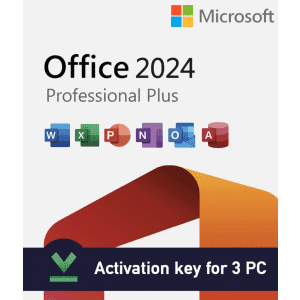
Shop hundreds of Milwaukee tools and accessories, including power tools, batteries, outdoor power tools, drill bits, socket sets, and more. We've pictured the Milwaukee M18 FUEL 3/8" Compact Impact Wrench w/ Friction Ring for $154.95 ($74 off). Buy Now at Amazon


Save on snacks, coffee, condiments and other household basics. Plus, checkout via Subscribe & Save to save an extra 15% (instead of the usual 5%) on a wide range of items.
Buy Now at Amazon


Grab 24 new lures for all of your adventures. Buy Now at Amazon


That's the lowest price we've ever seen this one. Buy Now at Amazon
- 3440x1440 (Ultrawide 1440p) resolution
- HDR10
- HDMI & DisplayPort
- Model: LS34C502GANXZA
- UPC: 887276724881



Digitalkeysbox offers Microsoft Office Pro 2024 for Windows (3 PCs, Lifetime License) for $12 when applying promo code "PRO2026" at checkout. Buy Now at Digitalkeysbox
- Lifetime activation for 3 PCs
- Compatible with Windows 10 and Windows 11
- Instant digital delivery
- One-time purchase — no subscription required
- Includes Word, Excel, PowerPoint, OneNote, Outlook, and Access (2024 versions)


Use promo code "NEW2026" to drop the price. That's almost $100 off and a nice deal on any such pair of work boots. Buy Now at eBay


That's a further drop from our mention last week and a 60% off savings right now. A 1-year Allstate warranty applies. Buy Now at eBay

Save $7 off the list price. Choose pickup or spend $35 to avoid the $6.99 shipping charge. Buy Now at Walmart

Use promo code "HOMEQTYGIFT25" to drop the price. That makes for a total of $23 off and less than a buck per item. Buy Now at eBay


The next best is $10 more, at Amazon. Outside that, it's $40 pretty much everywhere else today. Buy Now at eBay
- lasts 100 Gallons
- 3-stage filtration
- Model: PFM400H

FitVille offers the FitVille Men's Cloud Wanderer V24 Shoes for $29.99 (reduced from $70) via coupon code "CW50" with free shipping. Buy Now at FitVille Buy Now at FitVille

That's a $16 savings. Buy Now at Amazon

This is between $35 and $40 elsewhere. It's available in the pictured Mimitchi only at this price. Buy Now at Amazon



Get this price in multiple colors. Choose pickup or spend $35 to avoid the $6.99 shipping charge. Buy Now at Walmart


That's 40% off and the best we've ever seen on this build. A 2-year Allstate warranty applies. Buy Now at eBay
- 13th Generation Intel Core i5-13420H 3.4GHz Raptor Lake quad-core CPU
- 15.6" 1920x1080 (1080p) IPS display
- 16GB RAM & 512GB SSD
- Windows 11 Home
- Model: NX.KN4AA.004



iTalkPet offers this Safety Breakaway Custom Cat Collar for $4.98 (reduced from $12.98) via coupon code "DealNews8" with free shipping. Buy Now at iTalkPet
- adjustable strap
- breakaway safety buckle, preventing cat from getting tangled or caught
- stainless steel bell


Save $7 off the list price. Choose pickup or spend $35 to avoid the $6.99 shipping charge. Buy Now at Walmart
- measures 11.7" x 5" x 6.8"


Save $8 on this officially licensed product. Choose pickup or spend $35 to avoid the $6.99 shipping charge. Buy Now at Walmart

Save $14 off the list price. Choose pickup or spend $35 to avoid the $6.99 shipping charge. Buy Now at Walmart

Get a head-start on Valentine's Day, and save about a buck compared to local prices. Buy Now at Amazon

Save $8 off the list price in Splat (pictured) or Camo. Choose pickup or spend $35 to avoid the $6.99 shipping charge. Buy Now at Walmart

Save on all kinds of groceries, vitamins, household essentials, personal care items and more. There's discounts of as much as 80% off available. Buy Now at Woot! An Amazon Company

That's half off and the lowest price this item has ever been on Amazon. Buy Now at Amazon
- 2 AC outlets
- 2 USB-A ports
- 10-foot heavy duty cord
- fits in 3-1/8" standard grommet holes
- 25V/12A/60Hz
- 1,500W max output

That's $70 off and the lowest price we could find. It's also $68 under our July mention and the lowest price we've ever seen. Buy Now at Walmart
- Multi-functional cart
- Metal lower shelves
- Concealed drawer storage
- Casters
- Model: SFKCWMS-T
How Much Can I Save on the Hottest Deals?
The average savings can vary wildly day by day, but we regularly see discounts of anywhere from 15% to 96% off. The biggest discounts usually pop up for holidays, such as these Early Prime Day Deals. Thanks to coupon codes giving extra discounts, we'll regularly see shoes and apparel from the biggest brands like Nike, adidas, and New Balance at over 50% off. If you're looking for tools or home improvement, we see deals from stores like Home Depot and Lowe's that take up to 70% off. Plus, if something's at its best-ever price, or close to it, or is just something we think is extra neat, you'll probably find it on our Staff Picks page.
How Often Are the Hottest Deals Updated?
Around the clock! An international team of highly-trained deal jockeys is constantly scouring Amazon, Walmart, Best Buy, Target, and any other store you care to name, seeking out the latest and greatest deals for you to peruse. From daily deals and doorbusters to niche finds and off-the-wall offers, our pages are always being updated with something new and interesting and discounted.
